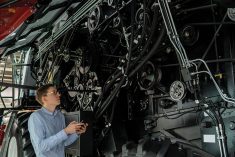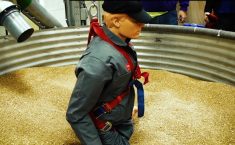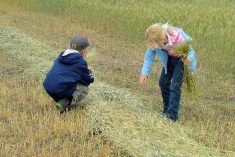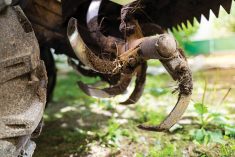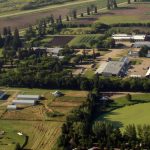Growing up on the family farm near St. Malo, Man., the Racine children experienced a close call while playing in a large truck. All five kids had free range of the family’s grain farm and made toys of anything they could find. Monique Racine remembers how their imagination knew no bounds and how fearless they were.
“When I was a kid, we weren’t afraid to take a hammer and nails, and just put them into a piece of wood,” Monique recalls. “I remember taking a drill and drilling holes in aluminum bowls!”
Read Also
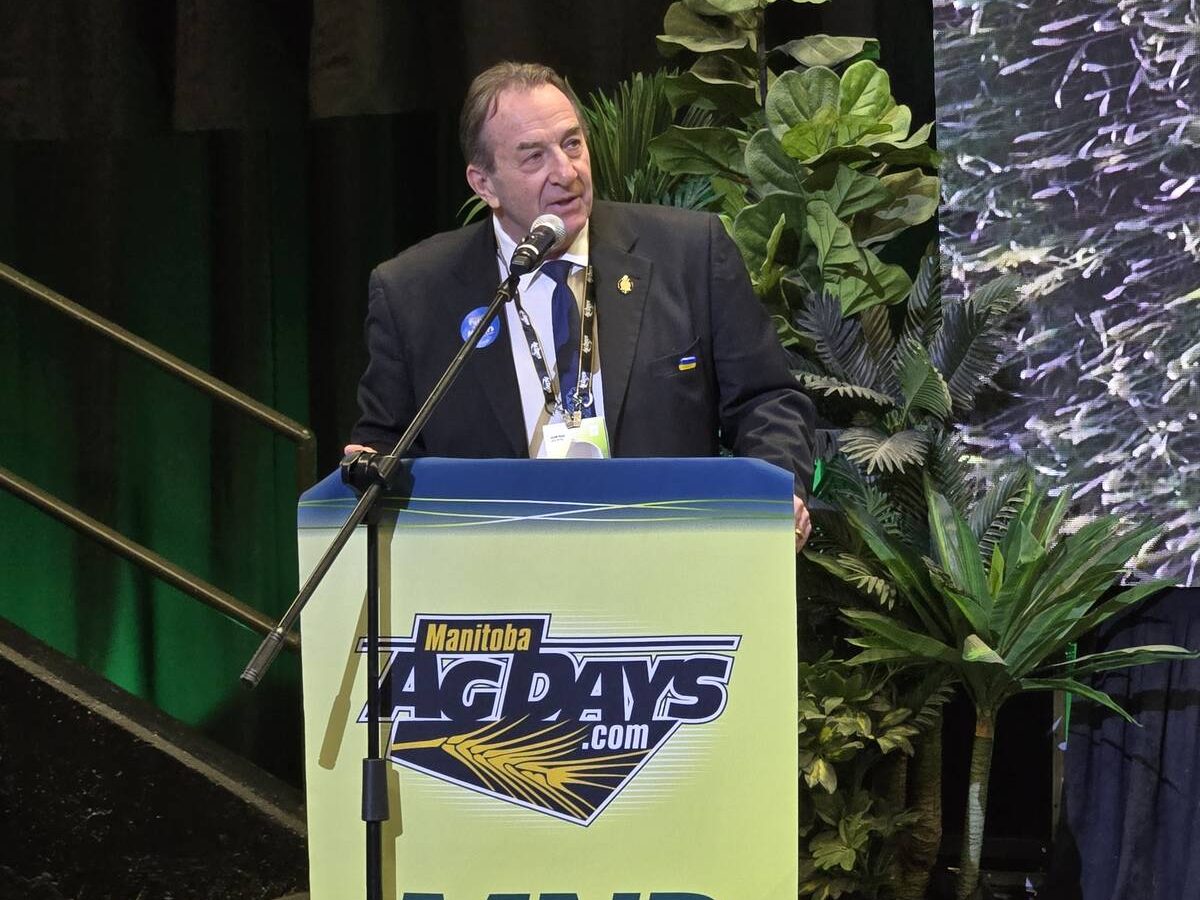
Manitoba crop insurance expands wildlife coverage, offers pilot programs
New crop insurance coverage is available to Manitoba farmers.
During the harvest season of 1986, everything changed. Monique and her younger brother, Patrick, took lunch to her father and older brother in the field. As they had done before, she and Patrick were playing in the truck box where the wheat was being unloaded. Patrick remembers waving hello to his brother in the combine as it unloaded into the truck box around him. He hadn’t yet realized his body was already stuck in the grain. He vividly recalls suddenly struggling to pull his arms out of chest-high wheat and looking over to see Monique was worse off.
“The wheat was above Monique’s nose and eyes already, so I got my left arm out to scoop enough wheat away from her mouth and nose constantly,” he says. “The pressure of the wheat on my chest was so heavy, I was trying to breathe so hard but I couldn’t, so I panicked… it was a nightmare.”
Outside of the grain box, his father, Emile, had returned in another truck to take the next load of wheat from the field and had expected to see the two younger kids around. Emile is not sure what it was that made him think they might be in the back of the truck.
“I came to the field to see no kids in the truck, and I just panicked,” he explains. “I automatically went to the back of the truck, opened the gate, and they both came out.”
Patrick says he can clearly remember Emile was “as pale as a white wall” as he knelt down to check them both over. “They were both OK but that was a very close call,” Emile says. “After that, I told them that they had to stay home.”
No one was allowed to play on equipment anymore and Monique says none of the kids could see the fun in it after that anyway. The new farm policy became “if you can’t count five heads in the yard, you can’t start up or move equipment.” Emile bought two-way radios shortly after that so there could be more communication about where the kids were supposed to be and fortunately, they never had another close call after that. Now that the kids are grown and bring the grandchildren to the farm, those safety policies are as important as ever.
Patrick says maintaining eye contact is a good policy but he’s learned the value of conducting walk arounds too. He’s moved away from the farm and says it’s a mandatory practice on his construction worksite. Fatal accidents in the past have proven the equipment is simply too big to see everyone from the cab. In his opinion, walk arounds ensure you really know your surroundings as an operator.
“Where I work, you walk around, make sure there’s no one behind you, and no one near the equipment,” he says, “no matter what.”
Monique says their family had to learn their commitment to safety the hard way and she’s determined to teach her four-year-old daughter without another close call. If constant supervision isn’t a guarantee, Monique says she won’t let her daughter be in a position where there’s a potential safety risk. “If she’s going to go in the shop where there are chemicals, I know her, and curiosity’s gonna take over.” That’s why Monique strongly believes it’s ultimately up to parents to ensure the safety of their children. If that means insisting on hazards being put under lock and key, dedicating a babysitter to constant supervision, or simply declaring ‘no-go’ zones, than that’s what she believes parents should do.
Canadian Agricultural Safety Association, casa-acsa.ca




